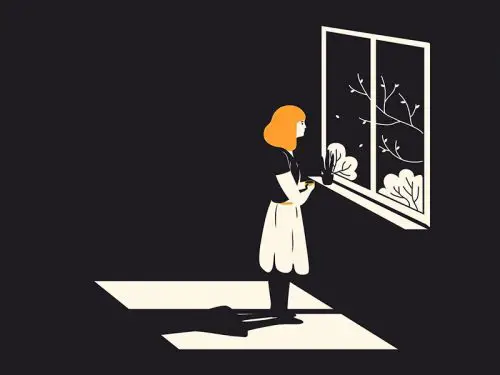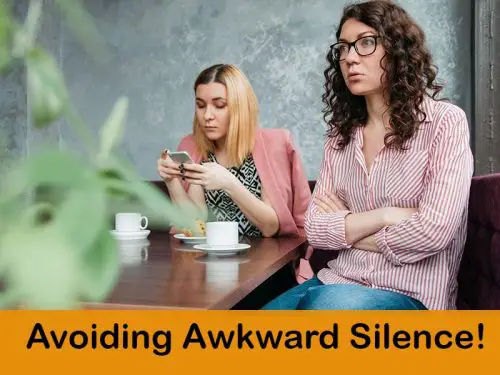How Many Friends Do We Actually Need?: It progressively becomes clearer that the number of friends we actually need is not a one size fits all aspect. It is rather a variant that differs from person to person.
A friend is not someone, only little children desperately need on their first day of school to avoid feeling left out in a new place.

Inspiring your journey, one story at a time. #LifeFalcon.
In fact, people of all ages, young, old, man, woman, require friends as a basic need of life along with the love, care, and happiness that comes with these friendships.
As Misty Copeland quotes:
“Anything is possible when you have the right people there to support you.”
But not everybody is your friend.
Unarguably, a friend is a person we can spend time with away from the frazzle and exhaustion of daily life. Someone we can count on no matter what we are going through. Someone who has our back whenever a problem is standing in front of us.
Sometimes a friend is like family, knowing us more than we know ourselves. Friendship is one of the most important and valuable aspects of life.
The presence of a good friend really makes life worth living.
Trust, love, authenticity, tolerance, support, fun, and a shoulder to cry on are things we seek for whenever we have to make friends.
Friendship is vital for healthy mental and physical well-being.
Friends are nothing less than the essence of life.
They make it a ride worth remembering.
Making friends can be ridiculously easy sometimes and can overwhelm us.
But how many friends do we actually need in our life?
This is a question that might come to your mind whenever you think about friends.
So here we are going to look into some facts, to be able to derive the actual number of friends we really need in our life.
Or is there even a number to state that? Well, Let’s find out.
Table of Content
How many friends do I really need?

To be very honest, the number of friends that we need varies from person to person. No two peoples’ preferences can be the same. The concept of human nature is unique for everyone. Our personalities are not something that can be a universal topic. Everyone has an identity that is a distinctive composition of several personality traits and this identity is specific to each one of us.
Two people can like the same things, hate the same things, but a divergence in opinion and personalities will occur somewhere down the road no matter how similar they are. And to be honest, that is the beauty of life. This is an important factor to consider because one’s personality and character hold significant and pivotal importance when it comes to the number of friends they prefer in their lives.
Friends can be qualified as ‘want’ instead of ‘need’ in this sense, depending on how many you want.
Today we are going to talk about how many friends we really need under the light of the 3 most prominent types of personalities: introverts, extroverts, and ambiverts. This is more of a generalization of what the presumption is regarding these kinds of people.
However, as I said, not every person is the same. Hence not all introverts are the same, nor extroverts, neither ambiverts.
Introverts:
We all know about introverts.
They are passive and reserved people who are linked predominantly with their own feelings rather than getting concerned over external things.
Portrayed as shy, quiet, or socially inept individuals who prefer staying home rather than going out; in books, they find it better to nurture a few deep and close relationships rather than going after multiple shallow ones.
These kinds of people choose to stay away from social arrangements because social encounters can drain or exhaust them. It can be said that due to these traits, it is not the easiest for them to make new friends. It subsequently requires the investment of a lot of energy and introverts are mostly not up for that.
In this case, the number of friends needed will obviously be different than someone who enjoys social gatherings. Introverts prefer a smaller friends’ circle with a few people to interact with. They usually have a couple of friends they are extremely close to.
However, it must be noted that having fewer friends does not rule out the possibility of them having a good number of acquaintances. I am not saying that introverts are in any way, fearful of social encounters. My point is that they just prefer to not socially stimulate themselves.
It is usually assumed that introverts do not have friends. However, it is not true. The only reason why they prefer to have few friends is that their method of communication is different than others and they find it difficult to come across people who can easily understand this.
Extroverts:

An extrovert, on the other hand, is the complete opposite of an introvert. Enjoying social activities, group work, and interacting with new people is very common to them. Talking about the presumably positive traits, extroverts can be counted as sociable, enthusiastic, and outgoing human beings who often feel rather isolated if they are alone.
These traits give them the ability to talk to more people and hence end up making friends with them. Unlike introverts, extroversion leads the person to get energized by feeding off of social interaction and stimulation.
Due to their vibrant, talkative, cheerful, and friendly auras, they are successful in making a lot of friends. This further justifies how the number of friendships is dependent upon personality and preference, rather than a universal rule.
They might choose to keep their close friends circle limited to a number of people, but they are often acquainted with several others. It will be absolutely wrong to argue that introverts need to make more and more friends and that having a greater number of friends than is what makes you superior. Everyone carries on with life according to their personality and like I said previously, opinions do differ somewhere along the line.
Ambiverts:

Then come ambiverts, the best of both worlds, an equilibria fusion of both introvert and extrovert features.
As the description conveys, ambiverts being a mixture of extrovert and introvert.
They enjoy both, being in social gatherings and being alone.
Undoubtedly, one of the greatest advantages of being an ambivert is that you can relate with nearly anyone in one way or another.
Since they have elements of both introvert and extrovert within them, they can understand and relate to the characteristics displayed in the attitudes of introverts and extroverts and this makes them a good friend.
Ambiverts can have several friends, maybe just a couple, or perhaps an amalgamation of some close ones and a few more people whom they are not very close to but still interact with on a regular basis.
It is relatively easier for them to make friends because of their compassionate and understanding personalities.
To Sum Up…
So is there a universal number of friends you should have?
It just depends on your personality. How many friends can you really handle actually?
People who enjoy going out, seeing and talking to new people both on social media and in real life, often radiate a sort of enthusiasm that attracts a greater number of friendships. Whereas, people who find comfort in solitude, being away from everyone, avoiding interaction at social gatherings for whatever reason possible; perhaps do not want as many friends.
Hence, we cannot derive any specific rules and regulations regarding the number of friendships we need in our life. We may appear similar, but the traits that make up our minds and souls hold us different from each other. Our personalities have a hand in making us the people we are. And the things we want including our social needs and the friendships we have and need.



















